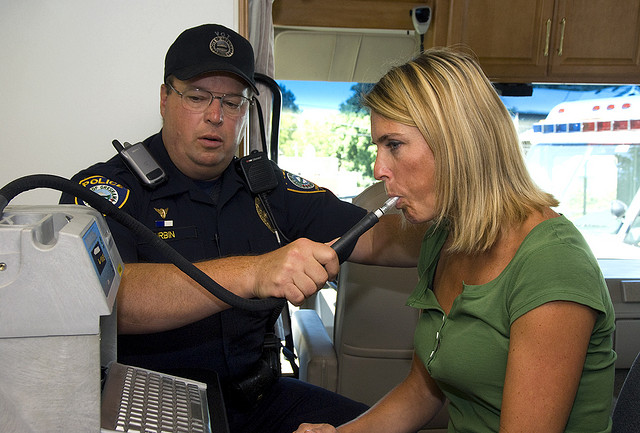 As a result of efforts by both private advocacy groups and public agencies to bring awareness to the dangers of drinking and driving, the number of people arrested each year for driving under the influence, or DUI, has gone up significantly over the past several decades. People do, however, continue to have momentary lapses in judgment which can result in an arrest for DUI. If you are one of those people, you are undoubtedly concerned about the outcome of your case, particularly if you failed a breath test. The officer who administered the test likely made it sound as if you were already convicted as a result of your test results. What they don’t want you to know is DUI defense lawyers can challenge breath test results.
As a result of efforts by both private advocacy groups and public agencies to bring awareness to the dangers of drinking and driving, the number of people arrested each year for driving under the influence, or DUI, has gone up significantly over the past several decades. People do, however, continue to have momentary lapses in judgment which can result in an arrest for DUI. If you are one of those people, you are undoubtedly concerned about the outcome of your case, particularly if you failed a breath test. The officer who administered the test likely made it sound as if you were already convicted as a result of your test results. What they don’t want you to know is DUI defense lawyers can challenge breath test results.
Your DUI Arrest
Although every DUI investigation is unique, most follow a similar pattern. Once a motorist is stopped, the officer will ask a series of questions designed to illicit incriminating information – or at least to give the officer time to study the motorist’s actions and speech. If the officer believes the motorist is under the influence of alcohol or a controlled substance, the officer will usually ask the driver to perform a series of field sobriety tests (FSTs). The results of the FSTs are not admissible in court, but can be used to find the probable cause needed to arrest the driver for DUI. Once arrested, the motorist is transported to the jail or police station. Upon arrival, the motorist will be asked to submit to a chemical test. Usually, a breath test is used unless the defendant is unconscious or the officer suspects the suspect is under the influence of a controlled substance. (A breath test will only detect the presence of alcohol.)
The Nebraska Implied Consent Law
Like most states, Nebraska has an implied consent law that reads as follows:
Any person who operates or has in his or her actual physical control a motor vehicle in this state shall be deemed to have given his or her consent to submit to a chemical test or tests of his or her blood, breath, or urine for the purpose of determining the concentration of alcohol or the presence of drugs in such blood, breath, or urine.
In essence, this language means if you drive a vehicle in Nebraska you consent to a chemical test. You can refuse the test; however, refusing a chemical test is a crime in itself. Refusing a chemical test could result in a license revocation for up to a year and subject you to jail time.
Are Your Test Results Accurate?
If you are like the average person, you submitted to a chemical test because you felt you really had no other viable option. Your test results obviously came back with a BAC higher than the limit of 0.08 percent. Are those results accurate though? How dependable is the breath test machine? What about the person operating the machine? These are all valid questions your DUI defense lawyer can use to challenge the results. Contrary to what people are led to believe, breath test machines are hardly infallible. Moreover, the results can be skewed by a number of factors, such as:
- Failing to calibrate the machine properly and regularly
- Operator error
- Foreign object in your mouth
- Medical condition of yours
- Inability to provide sufficient test sample
Even if the test result was accurate, it may not actually represent what your BAC was at the time you were operating the vehicle. Known as the “rising alcohol defense,” your DUI defense attorney may be able to argue your BAC level was actually lower at the time you were stopped but continued to climb after your arrest.
The key to avoiding a conviction for DUI, when possible, is to consult with an experienced Nebraska DUI attorney as soon as possible after your arrest.
Contact Us
If you are currently charged with driving under the influence in Nebraska, contact the DUI defense lawyers at Petersen Criminal Defense Law 24 hours a day at 402-509-8070 to discuss your case.


